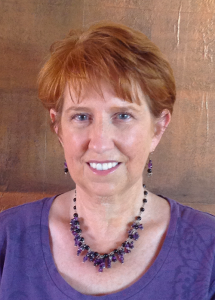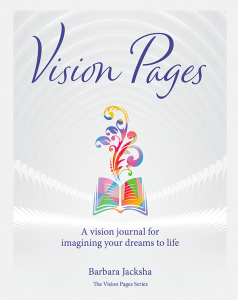
by Jenna | Mar 20, 2018 | Writing Articles
Let’s talk about writing. And overwhelm.
First, a story.
When I was a kid, my parents used to take us on high Sierra backpacking trips. They were hard. We’re talking about high-altitude, have to hit 10,000 feet before you get to the lake kind of hard. With backpacks. On super steep trails. In the blazing sun. I was also prone to altitude sickness, so there wasn’t a lot of incentive to go higher, other than the incredible beauty of the alpine lakes and the satisfaction we had once we reached our destination.
Which was actually a hell of an incentive.
Every summer my sister and I would slog up the steep trails, managing the weight of our packs on our sore shoulders, the blisters forming on our feet, the headaches creeping in, the tiredness, and the whininess that would sneak into our voices. My dad always brought up the rear, even though he was the fastest and strongest hiker.
In every trip, there were always points along the way where I begged to stop. I’d despair that we’d ever get there. My dad was my coach at those times. Giving up wasn’t an option. He was always patient, calm, and quiet. He’d just wait with me until I was ready to get up and keep going.
He’d say, “Just keep putting one foot in front of the other. Don’t think about how far it is to the top. Just look at the trail right in front of you, and focus on getting to the next bend in the trail. Then the next, and the next.”
And bit by bit, we’d get there.
Overwhelm In Writing
As writers, we often hear the line from E.L. Doctorow, “Writing is like driving at night in the fog. You can only see as far as your headlights, but you can make the whole trip that way.”
Usually this quote is used to describe the process of figuring out a story and how we find our way through it, bit by bit. But we can also use it to describe and understand the entire process of writing, from first draft, to rewrite(s), to publication, and to marketing, including dealing with any and all overwhelm at each of those stages.
When we’re writing, the big gap between here (where you are right now) and there (where want to end up — done! finished! published!) can feel pretty darned overwhelming. So overwhelming, in fact, that you might be wondering if you’re even capable of making it.
Underlying Causes & Solutions for Addressing Overwhelm
Let’s dig a little deeper into where you might be feeling overwhelmed, and then look at some solutions to help you find your way through.
6 Underlying Causes of Writing Overwhelm
When you’re feeling overwhelmed, no matter what stage of writing you’re in, here’s what might really be going on:
- There’s so much left to do, and it really is overwhelming. Writing a book is a long haul project. So is a screenplay, when you consider the many drafts a script often goes through before it’s produceable and marketable. There’s a ton of work left to do, and it’s easy to feel disheartened when staring up the face of the enormous mountain you’re attempting to scale. (Hint: You’re looking at the mountain, not the trail.)
- You’re scared to put yourself out there. Writing a book can trigger self-doubts, fears, procrastination, perfectionism, and resistance. When you’re conscious of it, you can feel overwhelmed by the enormity and responsibility of it all. When you’re less conscious of it, you can get stuck in writing overwhelm as a kind of “safe haven.” It can feel easier to go around in circles than to take the risk of fulfilling your big dream.
- You’re doubting that you’re up to the challenge. Hand-in-hand with #1, above, you might not even feel sure you have what it takes to write at the level required to succeed. You might be losing confidence in yourself, your book, and your ability to write. If you’re in this place you may be so overwhelmed that you’re considering giving up on your book, or worse, giving up on writing altogether. This is the kind of overwhelm that comes from a crisis of confidence.
- You’ve lost your way. Sometimes you can end up feeling lost, like you’re not sure how to solve the story problems you’re facing (or even to figure out what the problems truly are), or you’re overwhelmed with a sheer quantity of content and disorganization, and you can end up going around in circles, feeling paralyzed, dazed, and confused. The fear here is that you’ll never find your way.
- It feels like you’re running out of time. Many of us have this ticking clock inside our heads about when it’s okay and when it’s too late to “arrive” on the scene with our finished books. The fear here is that it’s too late for you, which creates a sense of overwhelm around trying to fit way too much into too little time.
- You’re feeling overwhelmed by life, too. We’re busy. All of us. Our culture, our world, and our lifestyles seem to be busier than ever and only getting worse. Finding time to write seems darned near impossible when you’re juggling a job, kids, friends, pets, family, spouses, and more. The fear here is that you don’t have the time and space in your life to actually pull off making time to write, which again leaves you feeling overwhelmed.
6 Solutions for Moving Past Overwhelm and Into Action
Here are six solutions to help you overcome the overwhelm and move into action with your writing.
- Keep putting one foot in front of the other, just like my dad taught me. The most basic antidote for overwhelm is to take the smallest possible steps, one by one, to move through it. This means making a plan for how you’ll approach your writing (or rewriting), and working on it in the smallest possible pieces until it’s done. In fact, the more resistance, fear, or doubt, you’re feeling, the smaller the chunk you’ll want to work on (even if you spend all day working on small pieces). If you keep your focus on the next step right in front of you, you can get through to the end.
- Get mad. Resistance is a smothering force. It paralyzes you and bogs you down, until you begin to feel hopeless and like you’ll never succeed. Anger, on the other hand, holds the powerful energy of action. When resistance gets you down, get mad. Use the energy of being a little (or a lot!) pissed off that resistance is trying to beat you to get fired up and get back to work. When I feel discouraged, my fighting spirit rises up in me and says, “No way! I’m not letting resistance win.”
- Use a map, aka, remember your Big Why. When you’re lost and overwhelmed, remind yourself of your Big Why. Think about (and write down, for next time) WHY you’re writing this book. What do you love about it? What are your deepest reasons for wanting to write this book? Reconnect with your passion and love and energy for the book. Pair that with the energy of anger to light a fire inside yourself.
- Get help for the climb. Sometimes, you need help to reach the top of the summit. This could look like working with a coach, joining a writing group, or partnering up with a buddy. Someone who will be patient, supportive, kind, and compassionate without giving up on you for a single second.
- Make a push of progress on your book. A nifty trick for dealing with overwhelm is making a focused, concerted burst of progress on your story. Writing solidly, with focus, helps you regain your sense of identity and your confidence in yourself as a writer. This is what Tony Robbins calls “massive action.” And though I generally advocate for regular daily writing as the primary antidote for resistance, sometimes we need to take powerful action to restore our confidence, energy, and momentum. You can do a focused writing intensive to help you make that happen.
- Remember your ultimate destination. Not only are you writing this book or screenplay right now, you’re also working to fulfill your overall writing career goals. This project, right now, is part of the map you’re using to get there. While this might sound like contradictory advice, holding the big view of what you’re doing and why you’re doing it can help with taking the small steps along the trail.
The reward?
Reaching that ultimate destination. Seeing the world you want to see, from the great heights you’ve earned, step by step.


1. Featured image by AJ Yorio on Unsplash
2. Unsplash

by Jenna | Jan 25, 2018 | Writing Articles
It’s mid-January. If you “won” NaNoWriMo, you’ll have 50,000 words of raw material for a new novel. If you didn’t make it to the 50k mark, you’ll still have pages to work with.
But now what?
Where do you start, in shaping your big block of marble into something with legs, something that works, something that’s marketable?
Although many writers, already know this, it’s worth stating: Under most circumstances, do not revise from the beginning to the end of your draft in order.
When you’re working with a first draft, you first have to assess what you have before you start revising. At this stage, editing, polishing, proofreading, and wordsmithing are premature, unless you’ve written a near perfect draft, which is unlikely at this stage.
Unless you’re a thoroughly seasoned writer (in which case you probably aren’t doing NaNo), if you revise chronologically, you’ll most likely find major structural and development issues in your story and end up cutting or substantively changing the work you’ve just spent hours editing, which can be heartbreaking and a big deterrent to getting to a truly final and finished product.
What you’ll want to do instead is craft a revision plan.
Here are 11 tips to get you started.
11 Tips for Revising Your NaNoWriMo Draft
1. Think of your NaNo draft as an “intuitive draft.”
We’ve all seen and read the Hemingway quote, “The first draft of anything is sh*t,” and while that can help us overcome our perfectionism and get something down, I’ve come to see labeling our first passes as a “sh*tty first draft” or a “vomit draft” does a disservice to this valuable and important stage of work.
The term “intuitive draft” is thanks to one of my screenwriting mentors, Corey Mandell. I love his notion of seeing a first rough draft as a window into the souls of our characters and the feeling tone of the story. It doesn’t have to be perfect, but from it you gain valuable raw, fresh writing to guide your next steps.
Other names I like are “lightning draft” or “speed draft.” While this isn’t a hard and fast rule — you get to call it what you like, after all — I want to encourage you not to devalue your rough work but instead celebrate it as a valuable start.
2. And speaking of celebrating, did you?
And before you begin revising, celebrate! It’s important to acknowledge the work you’ve done. In the long-haul of writing a long form novel, it’s easy to feel overwhelmed by the work you have yet to do, and to dismiss or diminish or forget what you have already done.
I mean, dude (can I call you dude?), you just wrote 50,000 words! That’s not nothing! So celebrate and reward yourself for the good work you’ve done.
3. At the same time, keep “finishing” in perspective.
I can’t tell you how many first-time writers I’ve met who think their first draft is a finished book.
(Most non-writers think that’s how it works, and is probably the source of that endlessly annoying conversation that starts with something like, “Are you still working on your book?”)
But the truth is, unless you are a genius or meticulously plotted your draft from start to finish and wrote your draft in “pitch perfect authentic” form (another Corey term), this is first draft is essentially only that intuitive draft we were talking about, which means… the real work is about start.
4. Start by cataloging what you have.
One of my favorite and most beloved (if hard) steps from Rachel Aaron’s 2k to 10k book is the notion of “reverse-outlining” your draft, where you note the primary story event for each scene, along with any other key tidbits of information, like POV and word count.
The idea is to capture what happens in each scene in one brief sentence in a spreadsheet or document so you can easily see what you have, at a glance. It’s hard to grok what you’re working with in full length form, so creating a reverse outline will help you get a good overview.
Since I write in Scrivener, I like to use the synopsis area to write my brief one sentence story event summary for each scene. Then I switch over to outliner mode and export the outliner contents as a comma separated values file (CSV) and import it into my favorite spreadsheet software (Numbers for Mac) so I can work with it further there.
Recommended resource: 2K to 10K by Rachel Aaron *
5. Then, do your macro story work, either again or now.
Now it’s time to do the macro story work. Take a step back and look at the story as a whole. What kind of story are you trying to tell? What genre is it? What values are at stake? Are you meeting the conventions and obligatory scenes for your genre? Who are your characters? What are they trying to get or do? What’s your premise line?
There are many tools you can use to answer these important macro questions.
Over the last few years, I’ve become an ardent admirer of Shawn Coyne’s book The Story Grid. His take on understanding genre and how it influences audience expectations has been groundbreaking for me.
And lest you think he’s prescribing dreaded formulaic writing, take another look. The brilliance of his work is that he clearly demonstrates what an audience will need to experience in order to feel satisfied by a story — but ALSO highlights the importance, and the difficulty, of a writer innovating on those conventions and scenes.
For example, if you’ve seen it, think about the “Lovers Break Up” scene in the movie Passengers. It’s a perfect love story scene, in the sense that one character discovers a betrayal by the other. But the writer innovates on that “typical” scene in a totally unique way with incredibly high stakes (life or death).
This piece of work is about stepping back and thinking about what story you’re intending to tell and what the story needs to contain in order to work, in terms of story, plot, and character development. You can use The Story Grid and/or many of the other excellent tools available for helping you take that step back.
Recommended resources:
6. Review your desired story beats.
However you like to plot — or not, you pantser, you — now’s the time. Write out your major plot points, not necessarily based on what’s in your intuitive draft, but rather what you want them to be based on your macro story work.
I use a funny combination of plot points from working with ScreenwritingU.com, Chris Soth’s Mini Movie Method, and Cathy Yardley’s Rock Your Plot approach to identify my major overarching plot points:
- Opening
- Inciting Incident
- End of Act I, Lock In, Plot Point #1
- First Pinch Point
- Midpoint
- Second Pinch Point
- End of Act II, Cave Moment/All Is Lost, Plot Point #2
- Crisis
- Climax
- Resolution
I ALSO use Shawn Coyne’s Beginning Hook, Middle Build, and Ending Payoff method, with each of those broken down into what he calls the 5 commandments of Inciting Incident, Complication, Crisis, Climax, Resolution. Yes, this is redundant. And, it helps me cross-check and make sure I’m not only building the plot across the entire story, but within each act (and ultimately each scene as well).
7. Write out your Revision To Do list.
Using your macro map of what you want to create, compare it to what you have cataloged. Very quickly you’ll discover missing scenes and also where you’re already on the mark.
Use this process to create your Revision To Do list (another tidbit from Rachel Aaron’s 2k to 10k book) so you’re clear on the steps you’re going to take to revise.
At this stage, you’re still looking at the big stuff rather than the fine details of individual scenes.
For example, you’ll be identifying which scenes to cut, which scenes to add, what character or plot changes you’ll need to make, etc.
(Tip: Once I’m doing this work, in addition to saving a copy of my intuitive draft, I also I make a “compost” folder in Scrivener for scenes and raw material I cut so I can refer back to them easily retrieve them to pull back into my new draft. Alternatively you can use “snapshots” in Scrivener to help with this.)
8. Decide what you’ll tackle first.
Once you have your Revision To Do list, put it in order.
I recommend starting with the macro (biggest level) and then working your way down to the smaller stuff with your revision work.
If you’re restructuring the story, start there. You might begin by deleting all the scenes you don’t need any more (make a backup of the intuitive draft first) and insert placeholders for the new scenes, for example.
If you’re changing specific characters, devise a strategy for tracking and changing their development through the story.
9. Plan a timeline for your revision, if you like.
Optionally, you may want to plan a timeline for your revision.
This is usually most relevant when you a) have a deadline by which you either have to or want to finish by, and b) when you actually know what your writing pace is.
If you were tracking your time during NaNoWriMo, you probably have a sense of how much time it took you each day to hit your 1,667 word count. And if you know you have approximately, say, 20,000 additional new words to write for new scenes, based on your revision plan, you’ll know approximately how much writing time you’ll need.
On the other hand, you won’t necessarily know how long it will take you to take each revision step, so you’ll want to give yourself time and space to figure that out as you go along. Be aware that you’ll be highly likely to stumble across various “black hole” sections in your work, as one of our writing community members calls them, where you’ll end up spending many times longer than you expected, sorting them out. This is normal. :)
10. Work with the smallest chunks possible.
Now that you’ve got your Revision To Do list and your timeline, you have a plan.
But you may still have a case of the heebie-jeebies facing all that work.
The trick here is to pick out the small chunks possible to work on.
Even the macro work can be broken into smaller actions, such as backing up the first draft (I make a duplicate of my entire draft in Scrivener and label it 1.0, then label the new draft my 1.1 or 2.0 draft, depending on where I feel like I am in the process), cutting unneeded scenes from the first draft, putting in placeholders for the new scenes. Those are each small steps that can be taken, one by one.
If those are too big, make them smaller, e.g. cutting unneeded scenes from first act, or first section of the first act, for example.
The idea here is to craft your overall plan, and then forget about it while you focus on these day-to-day small steps. I call this willful blindness, and it’s a lifesaver when dealing with a major revision. Sure, check in with the bigger plan from time to time to make sure you’re on track, but in general, keep your focus on taking the smaller steps each day.
11. Get support.
Facing a rewrite can be daunting. (It’s even harder when it’s your fifth or seventh major revision.) I highly recommend getting a support system in place for yourself.
You can work one-on-one with a coach, join a critique or writer’s group, or set up a buddy system where you’re supporting a fellow writer and vice versa.
The important thing to have in place, in my opinion, is not just the practical support for staying accountable for doing the work of your writing, but also for the emotional journey. There are a lot of ups and downs and dark nights of the soul with rewriting, and you’ll not want to be alone for those. So do establish a support system for yourself.
I wish you all the best with your revising!
* This is an affiliate link, which means Called to Write receives a small commission from any purchases you make using this link, and which we deeply appreciate.

by Jenna | Dec 19, 2017 | Guest Posts
It’s time for another installment of our “Author Insights” series. In this series, I’m introducing you to writers who’ve taken their writing all the way to the finish line of publication, and they share their “lessons learned” with you. There’s nothing quite like learning from a writer who has made to the other side.
Meet Janis Brams, personal essayist and author of The Event
I’m so happy to introduce you to Janis Brams. Janis has been a member of my online writing community since the beginning of 2014, and is a personal essay writer. Over the years of working together through the writing community, I’ve been delighted to watch Janis develop a number of personal essays and pursue getting them published. While she’d had already had pieces published in an anthology and elsewhere, this was a big win for her for a number of reasons, including how unexpectedly satisfying it was for her to be published online.
I asked Janis to share her insights about her writing process and having this essay published.

Janis Brams on Publishing Personal Essays

Sometimes we wake up to find our lives racing down a path we haven’t chosen. In March 2014, I opened my eyes to discover Michael, my husband, sitting on our bed unable to speak. The challenges that ensued became the topic for a personal essay I wrote, called, “The Event: Two Perspectives.”
Through the process of writing, revising over time, and finally publishing the essay in July 2017, I learned a number of valuable lessons.
1. Allow time to walk away from emotionally charged writing before declaring it ready for others to see.
I began “The Event: Two Perspectives” soon after my husband suffered his stroke. In many ways, I think the writing process served as therapy, a way to work through my doubts and fears. Although I wrote a number of drafts before declaring the piece “ready-to-go,” I hadn’t allowed enough time to pass between our initial trauma and my decision to submit my essay for publication. After several rejections, I was discouraged and shelved my story until I felt better equipped to deal with such challenging subject matter.
2. Focus on the writing process and not how others might react when reading what you’ve written.
After a year passed, I revisited my essay. At the time, even the title was different, “Perimeters of Love.” I remember thinking the title didn’t work, and I’d included too many paragraphs explaining what I felt instead of showing readers. I also decided I’d provided unnecessary back-story, sharing information that didn’t contribute to the narrative.
I made revisions and then posted the new draft while participating in an online class. After receiving comments on the draft, I made more changes and continued to do so until I felt at peace with what I’d written. Still, I made no move to submit my new “final” draft; something seemed to be missing.
While workshopping my piece, I posted about my progress in the writing community and discussed my hesitancy to submit my latest effort. The members in my group and Jenna, during conference calls, supported my decision to sit with my revised draft longer.
At some point, I recognized that an important part of the story was missing, Michael’s perspective. After all, he’d been impacted most. If I was to share an authentic retelling, we both needed to be heard. Michael agreed to an interview, and I used what he shared to write the second part of my essay, his “Silent Monologue.”
3. Researching where to submit a piece takes a lot of time and emotional energy.
Having researched journals I thought were appropriate venues for this piece once, I was reluctant to initiate that process again. I was working on other stories and felt this was not a good time to move my focus from writing to submitting.
Someone in the writing community mentioned Writer’s Relief, a service that researches venue options for authors and even helps to polish query letters. I decided to pay for their expertise. While I experienced a few glitches, I found them to be responsive when I had questions and easy to work with. They read my essay, sent me a list of twenty-five journals they felt were a good fit along with names of editors, their submission requirements, and other pertinent information.
While I still had to send out my piece, I felt I was using my time wisely, targeting journals that might be better alternatives for my writing.
4. Navigating the acceptance/rejection process presents its own challenges.
After skimming submission guidelines for the journals suggested by Writer’s Relief, I found twenty-two to pursue. I earmarked several days to spend submitting and then waited to see what would happen.
The first seven responses were rejections, but two were what I call “good rejections.” Those journals took time to critique my piece and encouraged me to submit to them again. The editors explained, however, that they disagreed with my decision to include Michael’s perspective and would not be publishing this piece.
I began to question my vision. I shared my doubts with Jenna and my group members in the writing community. They reminded me that this story was mine and suggested that I give myself more time before making any changes. In the end, “The Event: Two Perspectives” found a home. I won’t ever forget how thrilled I was to read “Congratulations” in their email’s first line rather than “I’m sorry.”
Thinking back, next time I submit a story, I may prioritize the list of venues and then stagger my submissions. That way, I’ll have better control over where my work is published.
5. Publishing online was uniquely satisfying.
While I had published in print before, this was my first piece published online. Although having a magazine or journal to hold in my hand was exciting, I realized that more people read my online piece because it was more readily available. All a reader had to do was access the site, and my article appeared. Since my goal for a published piece was to reach as many readers as possible, the online venue was a great option.
6. The replies and comments made in response to my piece reaffirmed my feeling that others would find the topic compelling and that sharing our story was a worthwhile undertaking.
While not everybody who responded to The Event had the same reaction, they felt the need to share what they thought. Most said the topic was difficult for them but appreciated making the journey with Michael and me.
Overall, it was gratifying to hear from readers and have an exchange with them. I was amazed at how many old friends learned about my essay through social media and reached out to share their responses. It was a moving and validating experience because, finally, friends and family who knew I wrote had an opportunity to read something that was mine.

Read “The Event: Two Perspectives”
“The Event: Two Perspectives” is a personal essay written in the aftermath of Janis’s husband Michael’s stroke. The story centers on the first few hours of his “event,” from the time he realizes what is happening to the moment he is airlifted to a University hospital center. The piece is told in two perspectives, Janis’s in the first section, titled “The Storm,” and Michael’s in the second half, called “Silent Monologue.”

About Janis
 Janis Brams has been published in the High Desert California Writers Club Anthology, The California Writers Club Literary Review, Plymouth Writers Group, and a community magazine entitled View.
Janis Brams has been published in the High Desert California Writers Club Anthology, The California Writers Club Literary Review, Plymouth Writers Group, and a community magazine entitled View.
Janis holds two master’s degrees, one in Education from the University of Pennsylvania and one in Writing Composition from CSU San Bernardino.
Janis is an educator, having taught students of all ages for over 25 years. Now retired, she enjoys running, yoga, hiking, travel, spending time with her grandkids, and cooking. She founded a book club in her community that has been meeting for over forty years.
Find Janis’s other work here:
- High Desert California Writers Club Anthologies:
- The California Writers Club Literary Review, Winter 2012-2013, http://calwriters.org/
- Plymouth Writers Group, Anthology for Teachers’ Writing: Lost and Found, Fall, 2003 and Acts of Emancipation, Fall, 2005

* This is an affiliate link, which means Called to Write receives a small commission from any purchases you make using this link, and which we deeply appreciate.

by Jenna | Aug 21, 2017 | Science Fiction, ScriptMag Articles
A new article over on ScriptMag about Stasis with writer-director Nicole Jones-Dion.
Sci-Fi Circuit columnist Jenna Avery interviews writer-director Nicole Jones-Dion about her feature length film, Stasis, and her lessons learned for up-and-coming sci-fi screenwriters. [read more at ScriptMag]
Image courtesy of XLrator Media

by Jenna | Aug 2, 2017 | Guest Posts
It's time for another installment of our "Author Insights" series. In this series, I'm introducing you to writers who've taken their writing all the way to the finish line of publication, and they share their "lessons learned" with you. There's nothing quite like learning from a writer who has made to the other side.
Plus, if you leave a comment at the end of this post before Sunday, August 6th at 11:59 p.m. Pacific Time, you'll be entered to win an autographed copy of the author's book in a random drawing. Please note that you must be located in the United States to win.
Meet Barbara Jacksha, author of Vision Pages: a vision journal for imagining your dreams to life
I'm thrilled to introduce you to Barbara Jacksha. Barbara has been a member of my online writing community since 2014, and is a literary fiction writer. She came to the idea for creating her vision pages journal through writing daily morning pages, and shared her vision pages ideas with the rest of us on our writing community forum. Her idea then took on a life of its own, becoming a tool she could share with other writers.
I asked Barbara to share her insights about writing and self-publishing this book with us.

Barbara Jacksha on Journeying With Our Writing
 Most of us have a sense of our writing dreams. We think we know where they will take us. But often, our writing dreams will pull us in unexpected, remarkable directions.
Most of us have a sense of our writing dreams. We think we know where they will take us. But often, our writing dreams will pull us in unexpected, remarkable directions.
For years I wrote morning pages, filled journal after journal with wonderful observations, silly ramblings, and I must admit, a lot of complaining. One morning while writing about something that had gone wrong, I stopped. Why was I giving so much attention to what I didn’t want? Why energize that? What would happen if I only wrote about what I did want? That’s when my daily practice shifted to writing what I call vision pages: writing about what I want to have, do, be, and experience.
I loved it. I found the writing energizing, empowering, effective, and just plain fun. I told a few people what I was doing and got great feedback. That gave me the idea to create journals that would teach people how to write vision pages and give them space to play with their own dreams and visions.
I’d never created a journal before, so this was brand new territory. I felt intimidated, uncertain, a bit terrified, but also insanely curious and eager to take off on this unexpected journey. As I wrote and designed the journals, I learned a lot about myself and about following my writing dreams.
Here are some of the insights I came to on my journey to creating the journal:
#1 Value what YOU have to say.
When I first realized that people were interested in vision pages, I was surprised. Apparently, a part of me believed that my ideas couldn’t be valuable to others. That belief is simply not true--for me or anyone else. We all have much to contribute, as people, as writers, and to share what only we can say is one of our biggest gifts to the world. Our dreams and inner visions tell us what we need to share. We just need to listen!
#2 Be open to the fresh and unexpected.
I never thought I’d create a journal. I never thought I’d create YouTube videos of my work, but that’s also on my to-do list. Following our writing dreams often means venturing into new territory, in what we write about and how we get our work out to the world. There are many fresh and interesting possibilities available to us now, and they seem to be expanding daily. Don’t hesitate to open a new door. Once you do, you may find that many others open to you as well.
#3 Keep learning new things.
To create these journals, I polished rusty Photoshop skills and learned Adobe Illustrator and Adobe InDesign from scratch. Climbing that steep learning curve took patience and time, but now I have new skills I can apply any way I choose. Don’t let the need to learn something new stop you. Learning is always worth what you invest in it.
#4 Mine the wealth of your own experiences and let it support your writing.
Sometimes the idea of heading off in a new direction feels like you’re starting from scratch. But are you? In creating these journals, I called on skills I developed many years ago when I was a freelance business writer. What skills do you have in other areas of your life that can and do support your writing? Organization? Time management? Presenting to others? If we recognize the wealth of our own experiences, it can take the pressure off and help us see just how capable and prepared we already are.
#5 Relax and have fun.
Trying new things can be frustrating. We can get impatient or discouraged. One of the assignments I gave myself while creating these journals was to keep the process as relaxed and light as I could. When we relax, it’s easier to let our inner visions and knowing guide us. We’re also better able to let things in: new ideas, perceptions, information, solutions, you name it. As often as you can, let your writing be playful and relaxed. Let it be an exploration and adventure. I was amazed at the difference this makes, and I’m sure you will be too.
Maybe it’s time to have a cup of tea with your writing dreams and see where they’d love to take you next!
About Vision Pages
 Manifest your dreams using the power of imagination! Vision Pages takes journaling to the next level. When you write vision pages, you focus on what you desire to have, feel, be, and experience. It's like creating a vision board, but instead of relying on other people's words and images, you create with your own hand, using your own words, and write from your own inner wisdom and heart. Writing vision pages is both an immersive experience and a fun, empowering process that can bring about wonderful changes in you and your life. The Vision Pages journal briefly describes the four key steps to writing vision pages and imagining your dreams to life. The rest of the book is yours to fill with your life-changing visions.
Manifest your dreams using the power of imagination! Vision Pages takes journaling to the next level. When you write vision pages, you focus on what you desire to have, feel, be, and experience. It's like creating a vision board, but instead of relying on other people's words and images, you create with your own hand, using your own words, and write from your own inner wisdom and heart. Writing vision pages is both an immersive experience and a fun, empowering process that can bring about wonderful changes in you and your life. The Vision Pages journal briefly describes the four key steps to writing vision pages and imagining your dreams to life. The rest of the book is yours to fill with your life-changing visions.
Pick up your copy of Vision Pages on Amazon here (affiliate links*):
About Barbara
 Barbara Jacksha is a writer and spiritual explorer. Her work centers around liberating and living our inner truth and bringing more magic into our lives. Barbara’s short work has appeared in a variety of publications including the W.W. Norton anthology Flash Fiction Forward. She was an editor at flashquake and an editor and co-founder of the spiritual literary journal Cezanne’s Carrot. Barbara lives in the wilds near Santa Fe, New Mexico, with her husband, three dogs, and several neighborhood coyotes. To see what else she’s up to, you can visit her website: www.barbarajacksha.com
Barbara Jacksha is a writer and spiritual explorer. Her work centers around liberating and living our inner truth and bringing more magic into our lives. Barbara’s short work has appeared in a variety of publications including the W.W. Norton anthology Flash Fiction Forward. She was an editor at flashquake and an editor and co-founder of the spiritual literary journal Cezanne’s Carrot. Barbara lives in the wilds near Santa Fe, New Mexico, with her husband, three dogs, and several neighborhood coyotes. To see what else she’s up to, you can visit her website: www.barbarajacksha.com

* This is an affiliate link, which means my Called to Write business receives a small commission from any purchases you make using this link, and which I deeply appreciate.


![]()






 Most of us have a sense of our writing dreams. We think we know where they will take us. But often, our writing dreams will pull us in unexpected, remarkable directions.
Most of us have a sense of our writing dreams. We think we know where they will take us. But often, our writing dreams will pull us in unexpected, remarkable directions.